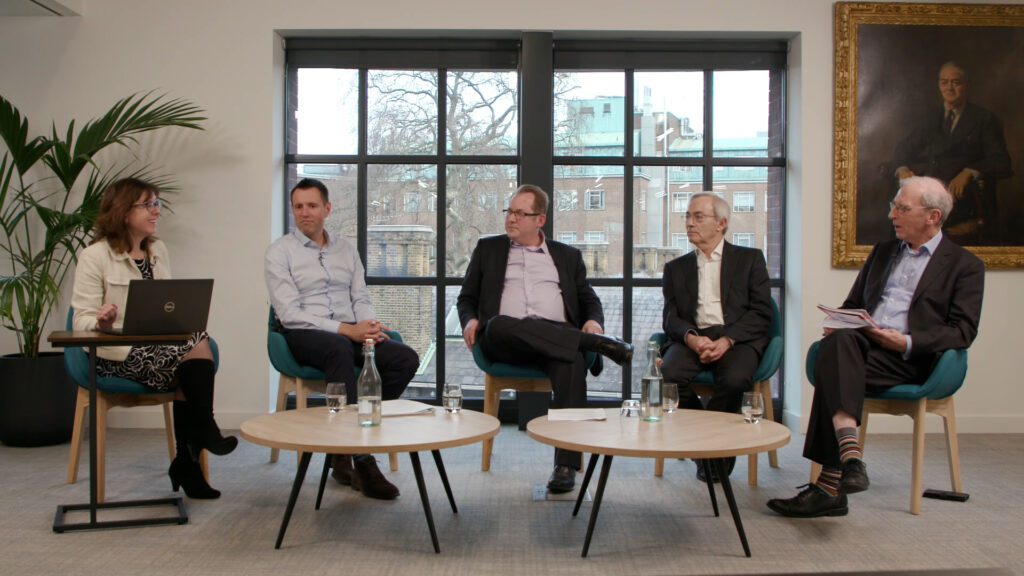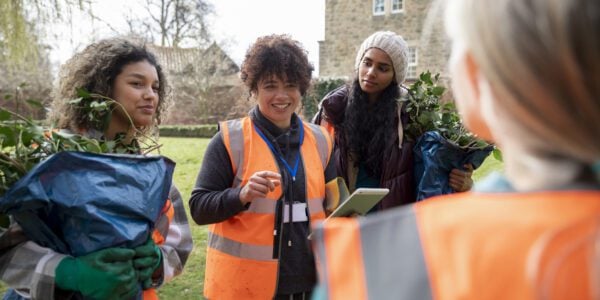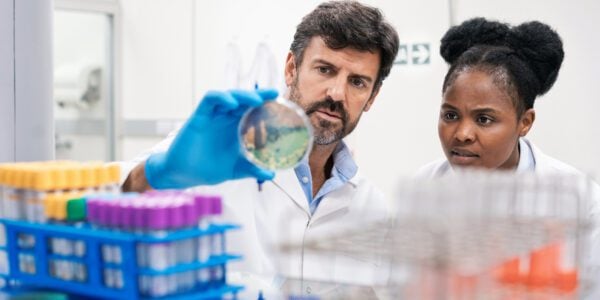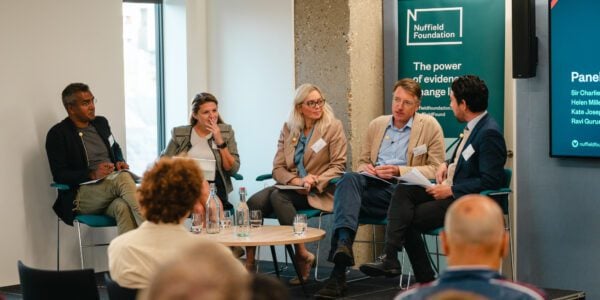
07/02/24
5 min read
Post-14 Education and Skills Programme Head, Emily Tanner, outlines five key messages that we took away from our event on the future of work and skills.
Place and opportunity: a better future for work and skills was held as part of our 80th anniversary programme, Changing lives for the better, which will support the development of our new strategy.
The event centred on three Nuffield-funded research programmes:
- The economy 2030 inquiry led by the Resolution Foundation and the London School of Economics and Political Science (LSE).
- The skills Imperative 2035 project led by the National Foundation for Educational Research (NFER)
- The Pissarides review of work and well-being led by the Institute for the Future of Work (IFOW)
The introductory presentations for the three programmes made clear how a place-based lens is important both for maximising national economic growth as well as for individuals to thrive in the places where they live and work.
The event explored the implications of the research for place-based skills policy through two panel sessions. The first panel discussion was with research leads from the programmes:
- Professor Sir Christopher Pissarides (IFOW)
- Jude Hillary (NFER)
- James Smith (Resolution Foundation).
The second panel was formed of local and business experts:
- Juergen Maier (Northern Powerhouse)
- Kersten England (Bradford Council)
- Richard Brooks (Birmingham City Council)
- Daniel Fell (Doncaster Chamber of Commerce).
The speakers and participants also discussed future priorities for evidence and data, chaired by Professor Sir Keith Burnett, Tim Gardam and Dr Emily Tanner from the Nuffield Foundation.
Five key takeaway messages on place and the future of work and skills
1. We need “proper devolution, not decentralisation”
The economy 2030 inquiry made a strong case for fiscal devolution and empowering local leaders to drive long-term strategic change. This emerged as the core theme of the regional panel.
Richard Brooks emphasised the major disparity between Birmingham’s opportunities and the capacity of the local authority to respond. Nationwide, hotspots of potential remain untapped because of the financial distress faced by public authorities. The speakers repeatedly referred to underinvestment in transport and other forms of infrastructure, with the gap widening between London and other major cities.
Panellists also noted that the fragmented approach to funding applications hampers strategic capability. It diverts resources into managing various funding streams and undermines stability for long-term planning. As Daniel Fell put it, “You’ve got to know what tools you’ve got in your kit to act strategically”.

2. Employers play an important role in a demand-based skills strategy
Daniel Fell explained how the Local Skills Improvements Plans aim to bolster employer leadership through representative bodies such as the Doncaster Chamber of Commerce in South Yorkshire. Private sector leadership, Daniel said, is fostering innovation and adaptability. Data and evidence are feeding into public sector planning via Mayoral Combined Authorities and education providers.
South Yorkshire epitomises the skills challenge, experiencing both a high rate of jobs at risk of automation, like logistics and warehousing, and exciting growth sectors, such as advanced manufacturing. While progress is being made in attracting local talent, employers are not fully capitalising on technology opportunities, especially smaller businesses (SMEs) focused on immediate needs.
Drawing on his experience as former CEO of Siemens, Juergen Maier explained Austria’s skills system; a national network of job centres that coordinate demand and supply between employers and skills providers. He noted that work-based training is an effective way to build essential employment skills. Juergen made the case for increasing apprenticeships, moving closer to the 40-60% in some other countries.
3. Essential employment skills are learned, not innate
The skills imperative 2035 programme identified the six essential employment skills that will be in highest demand in the future, drawing on labour market projections linked to skills taxonomies. These skills, including collaboration, communication and problem-solving, will be needed at higher levels to match labour market change. Forthcoming reports will identify the occupational groups most affected by the supply-and-demand mismatch and consider changes to the curriculum and wider education system to better prepare the future workforce.
The Pissarides review and The economy 2030 inquiry reached similar conclusions about the need for human-centric skills such as empathy alongside the technical and STEM skills required for technological transformation.
This topic elicited many questions from participants including on how to upskill older workers, encourage employers to develop essential skills in their workforce, and improve how skills are measured.
There was also a challenge that skills forecasts don’t seem to align with the reality of ‘low-skilled’ jobs, highlighting the potential to improve the quality of work and address the underutilisation of skills reported by employees.

4. Technology has human consequences
The Pissarides review evidences rapid technological change and the wide disparities between regions and occupational sectors. Similar to The economy 2030 inquiry, the researchers argue that the UK economy is well-placed to take on new technology, but can it be leveraged to create good quality jobs and reduce inequalities?
The research emphasises worker well-being and the human consequences of technology. Magdalena Soffia’s presentation outlined the positive effects of digital tools like real-time messaging on efficiency, connection and satisfaction prompting discussions on productivity gains and the potential for shorter work weeks.
By contrast, technologies such as wearable devices and robotics can increase anxiety as a result of surveillance and job insecurity. The importance of communication and management practices was picked up in the discussion and audience questions.
5. Skills planning needs top-level insights as well as granular data
Richard Brooks noted that “The kind of research we’ve been discussing today is phenomenally important” at different levels. Politicians and senior stakeholders need to understand the value of developing city centres and attracting investment, while local data is important for detailed planning.
Richard referred to the Birmingham City Observatory which made local census data available for forecasting the supply of skills across different areas and communities. This enabled planned outreach activities at a local area level.
Kersten England explained the value of a shared infrastructure for research and policy innovation. She cited the work of the Yorkshire & Humber Policy Engagement Research Network, which connects university research with local and combined authorities to influence policy and investment decisions. Placed-based studies, such as Born in Bradford, epitomise this collaborative approach.
The research gaps highlighted by participants included:
- How can we learn from international leaders in generative AI?
- How can AI and technology support skills development through curriculum innovation?
- How does organisational culture adapt to technology as it changes the role of managers?
- How can we increase employment contract flexibility, especially for women’s full participation?
- What is the role of the informal economy in our cities and how do we capture this entrepreneurialism?
Looking ahead for the Nuffield Foundation
We are hugely grateful to the presenters and participants for stimulating a rich discussion across a wide range of topics including some covered only lightly here such as the quality of work, education pathways, employer investment in skills and reducing inequalities.
The future of work and skills in the context of devolution and place will be critical themes for our next strategy. We invite new ideas for research that bridge research, government and employers to address the UK’s most pressing challenges.
To get in touch, please contact Emily Tanner.















































